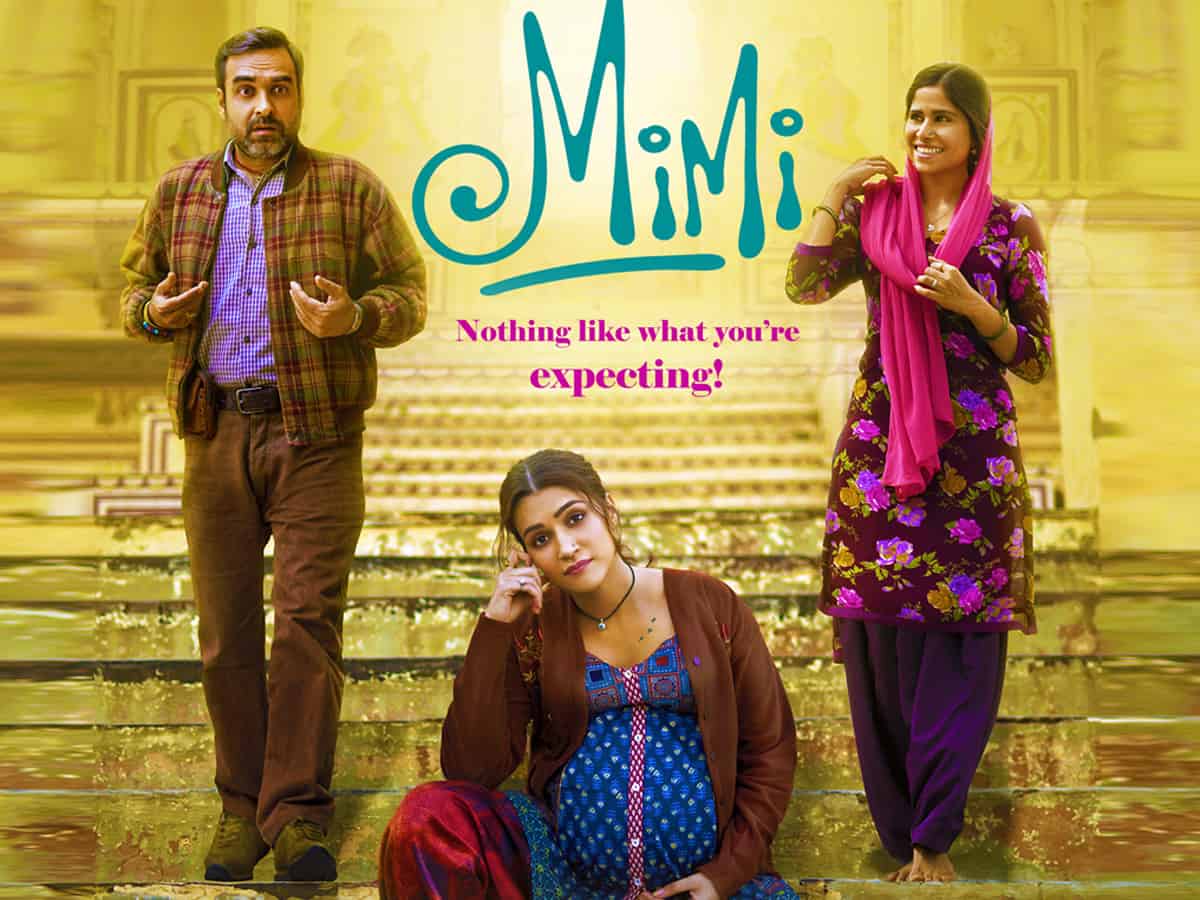Anuj Dahiya
Kriti Sanon and Pankaj Tripathi starrer film, Mimi is the latest attempt by Bollywood to bring the taboo topic of surrogacy back in the mainstream (last being Chori Chori Chupke Chupke 2001). The film showcases the story of Mimi, played by Kriti giving her career best performance, who wishes to become a heroine in Mumbai and for which she is saving money. It is through a typical dance number (Bikaner ki chokri, Santre ki tokri) when an American couple wandering in India for over a year, John and Summer, the intended parents, see in Mimi a potential surrogate mother. Bhanu played by the enigmatic Pankaj Tripathi, plays the broker in here and convinces Mimi to be a surrogate and get compensated in return. Considering the huge money prospects involved, she agrees to it without much delay. The film is set in a small town of Rajasthan in the year 2013. The twist comes when the American couple abandons Mimi and the baby in womb in between and our surrogate Mimi is left all by herself. This tragic turn of events has been the harsh realities for many in India.
Legalised in 2002, India has become a hub of commercial surrogacy, so much that it has been called a baby factory. Commercial surrogacy is legal in Russia, Ukraine and some States of the USA, but considering the cheaper costs, India becomes a preferable destination. A report estimates it to be worth more than $400, but the ethics of the practice has been largely questioned.
As in Mimi, the reference of khet, ganna, beej to the commercial surrogacy, the practise has led to the commodification of reproductive labour and women’s body. It is accused of treating the child as a good, reproduction as a service to be traded and establishing control over women’s bodies. Commercial surrogacy is likened to organ sale rackets. There is also power dynamics involved where the rich try to rent the womb for themselves, the surrogates coming from the lowest economic rungs of society. Coming out of dire property, their consent to be surrogates can hardly be called informed. It is coercive since refusal is mostly difficult. Also, in majority of the cases, they are illiterate and barely get a copy of the contract signed. The broker keeps a major chunk of the compensation.
The commercial surrogacy in India has largely flourished because of absence of regulations and red-tapism. Come 2014 and the NDA government comes up with Surrogacy (Regulation) Bill which intended to ban commercial surrogacies over night. It allowed only altruistic surrogacy from close family members which would cover medical expenses and insurance and will be limited to Indian heterosexual and infertile couples, having completed five years of marriage. This bill was passed by Lok Sabha in 2015 but could not steer through the upper house of parliament and was therefore, referred to a select committee. The Select Committee headed by Bhupendra Yadav, after consulting various stakeholders suggested that widows and divorced women be included, the five year marriage and infertility clause be removed from the bill. The bill accepting the recommendations is still pending in the Parliament.
But the bill has its share of shortcomings even now. It falls short of taking into account the rights of live-in couples and LGBTQ community who wish to start a family beyond the traditional nation of parents. The community has started to get legal recognition in India and their rights need to be protected. Further the interests of surrogates have also been ignored as banning surrogacy straight away leaves them out of economic opportunities and their chance to improve their lot. As Dr Patel of Akanksha Hospital, Anand, Gujarat says, Banning is never the solution. The ban will give rise to an underground market for surrogacy which will only worsen the situation for poor women.
The movie in the end strikes the right chords by focusing on adoption as a viable option. As it is conveyed, “If the orphaned children were to be a country, it would be the 7th largest in the world.” You can watch Mimi on Netflix and Jio Cinemas.
Anuj Dahiya
A student of Political Science
Instagram: @anuj__dahiya
Twiter: @unujdahiya


